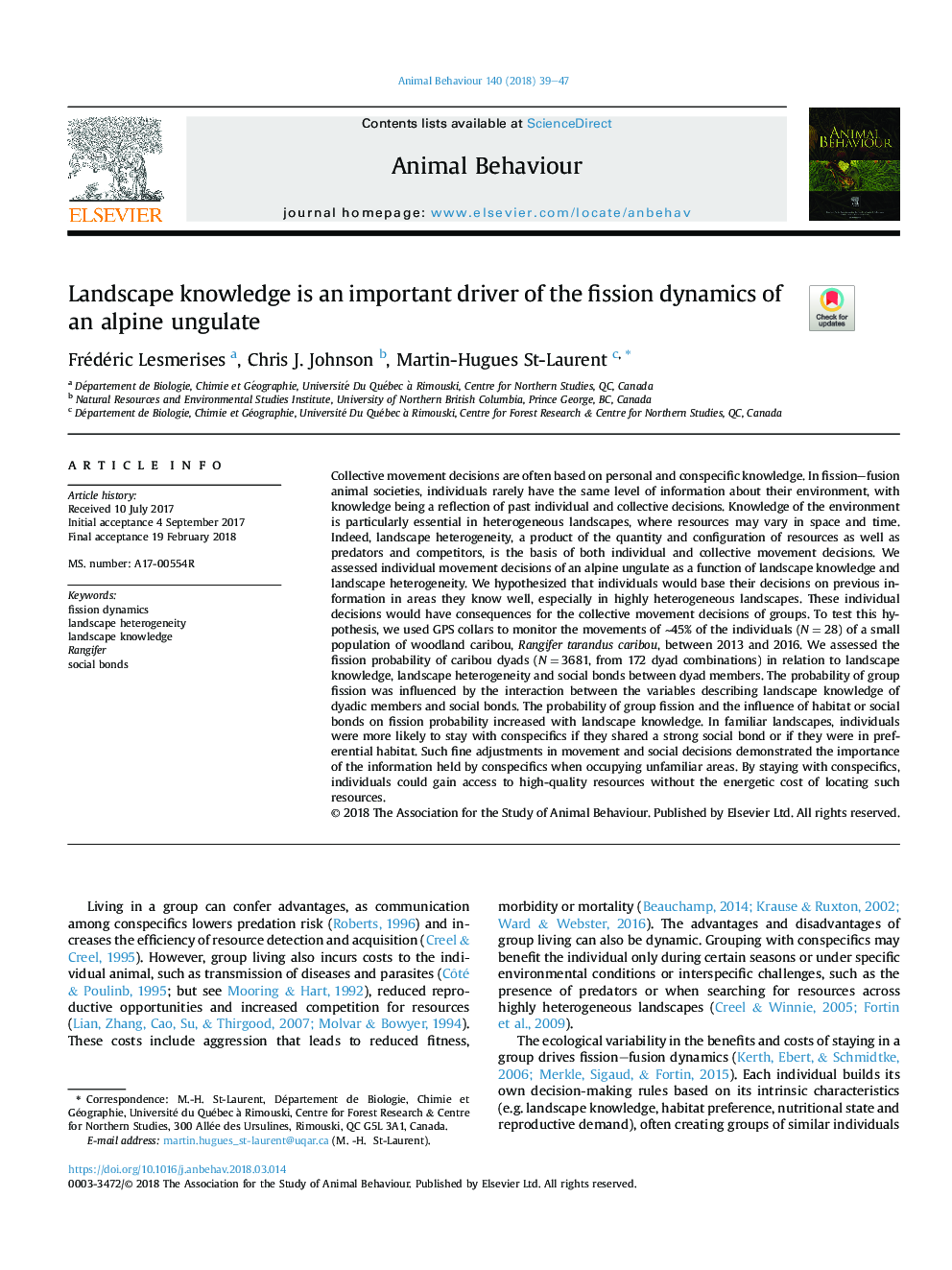| کد مقاله | کد نشریه | سال انتشار | مقاله انگلیسی | نسخه تمام متن |
|---|---|---|---|---|
| 8488516 | 1552188 | 2018 | 9 صفحه PDF | دانلود رایگان |
عنوان انگلیسی مقاله ISI
Landscape knowledge is an important driver of the fission dynamics of an alpine ungulate
ترجمه فارسی عنوان
دانش چشم انداز یک راننده مهم از پویایی شکافتن گوساله کوهی است
دانلود مقاله + سفارش ترجمه
دانلود مقاله ISI انگلیسی
رایگان برای ایرانیان
کلمات کلیدی
دینامیک شکافت، چشم انداز ناهمگونی، دانش چشم انداز، رنجیفر، اوراق قرضه اجتماعی،
موضوعات مرتبط
علوم زیستی و بیوفناوری
علوم کشاورزی و بیولوژیک
علوم دامی و جانورشناسی
چکیده انگلیسی
Collective movement decisions are often based on personal and conspecific knowledge. In fission-fusion animal societies, individuals rarely have the same level of information about their environment, with knowledge being a reflection of past individual and collective decisions. Knowledge of the environment is particularly essential in heterogeneous landscapes, where resources may vary in space and time. Indeed, landscape heterogeneity, a product of the quantity and configuration of resources as well as predators and competitors, is the basis of both individual and collective movement decisions. We assessed individual movement decisions of an alpine ungulate as a function of landscape knowledge and landscape heterogeneity. We hypothesized that individuals would base their decisions on previous information in areas they know well, especially in highly heterogeneous landscapes. These individual decisions would have consequences for the collective movement decisions of groups. To test this hypothesis, we used GPS collars to monitor the movements of â¼45% of the individuals (NÂ =Â 28) of a small population of woodland caribou, Rangifer tarandus caribou, between 2013 and 2016. We assessed the fission probability of caribou dyads (NÂ =Â 3681, from 172 dyad combinations) in relation to landscape knowledge, landscape heterogeneity and social bonds between dyad members. The probability of group fission was influenced by the interaction between the variables describing landscape knowledge of dyadic members and social bonds. The probability of group fission and the influence of habitat or social bonds on fission probability increased with landscape knowledge. In familiar landscapes, individuals were more likely to stay with conspecifics if they shared a strong social bond or if they were in preferential habitat. Such fine adjustments in movement and social decisions demonstrated the importance of the information held by conspecifics when occupying unfamiliar areas. By staying with conspecifics, individuals could gain access to high-quality resources without the energetic cost of locating such resources.
ناشر
Database: Elsevier - ScienceDirect (ساینس دایرکت)
Journal: Animal Behaviour - Volume 140, June 2018, Pages 39-47
Journal: Animal Behaviour - Volume 140, June 2018, Pages 39-47
نویسندگان
Frédéric Lesmerises, Chris J. Johnson, Martin-Hugues St-Laurent,
